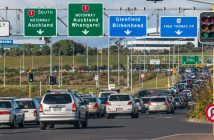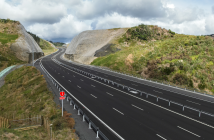Now is the time to recognise the manufacturing capabilities of Australia says the Australasian Railway Association (ARA)

ARA Chief Executive Officer Caroline Wilkie says that the Australian manufacturing sector’s capabilities need to be recognised, particularly in the wake of Covid-19, and calls for consistent procurement choices to benefit the Australian economy.
A new Victorian Government order for 18 VLocity trains to be built in Dandenong is welcome news for the rail industry and highlights the capability that exists in the Australian manufacturing sector.
The ARA welcomed today’s confirmation that Bombardier would build the trains at its Dandenong train and tram manufacturing facility, using 69 per cent local content, supporting 100 direct manufacturing jobs and hundreds more thorough the local supply chain.
Wilkie says the announcement confirmed the significant capability that existed in the Australian industry, and says the right policy settings would enable the industry to grow even more in the future.
“The Victorian Government has recognised the outstanding quality delivered by businesses operating right here in Australia in making this decision,” she says.
“Rail contractors and manufacturers are actively looking to increase their use of Australian businesses in the wake of the pandemic and these projects provide new opportunities for them to do so.
“It is great to see Bombardier awarded a contract that will deliver trains locally to support the smooth operation of the Victorian regional rail network for years to come.”
Wilkie says additional features such as mobile phone signal boosters, built in USB chargers, catering facilities and dedicated accessibility features demonstrated the Australian industry’s ability to deliver high quality outcomes to improve the passenger experience.
She says now was the time to put the focus on Australian manufacturing, and that even further benefits could be realised nationally if state governments worked together to create a nationally consistent approach to rail procurement.
“Passenger trains are being manufactured right here in Australia to the highest international standards,” Wilkie says.
“There are facilities across the country that can design, manufacture, maintain and repair rollingstock to individual operator specifications if government purchasers make the choice to do so.
“We have long been calling for a national procurement process for rail manufacturing to give the industry greater scale, promote efficiency and create more local jobs which are supported by advanced manufacturing techniques from industry.
“The NSW Government’s procurement choices have eroded the manufacturing sector and make it harder for local operators to compete.
“Better coordination with their counterparts in other states and territories would see more trains manufactured locally and improve efficiencies and cost profiles across the life of the asset.”
Australia’s rail manufacturing sector is led by companies including Alstom, Bombardier, Downer and UGL, with over 900 companies involved in manufacturing and supply in the industry.
Rollingstock manufacturing and assembly capability currently exists in Cardiff and Broadmeadows in NSW; Dandenong, Ballarat and Newport in Victoria; Maryborough in Queensland and East Perth in WA.
Metropolitan Sydney and Melbourne are the largest centres of rollingstock maintenance and repairs in Australia, and two of the three largest non-capital city employment bases for the industry nationally are in Newcastle and Lake Macquarie.
“Australia builds trains very well and has a rich history of doing exactly that,” she says.
“When governments make choices to prioritise local content, they secure an outstanding quality of product while supporting local jobs creation and strengthening our supply chains.”
Wilkie says COVID-19 has had a significant impact on global supply chains, with many companies in the rail sector seeking to use more local suppliers in the wake of the pandemic.
The ARA recently released a new tendering framework calling for a nationally consistent approach to rail procurement.
“A nationally consistent procurement process would benefit both state government purchasers and the rail manufacturing industry itself,” she says.
“The NSW Government says it is open to working with other state governments and industry to strengthen and standardise procurement processes – it’s now time for them to act.”
She says new jobs created in the rail industry today could lead to rich and rewarding careers for people currently looking for work.
“Early investment in rail now will give people the chance to get their foot in the door and build the foundations for a long career in the industry,” she says.
“At a time where we desperately need more people in jobs and more certainty for those rebounding from the economic hardships of the pandemic, we need to see more projects started sooner to build the country back up again.”
The ARA has been engaging with Federal and state governments on stimulus projects throughout the pandemic to help inform their economic response.




